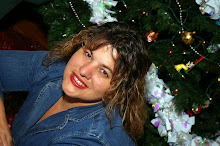
I'd be curious to hear from overseas friends when and if you turn your clocks ahead too.
Daylight Savings Time begins this Sunday:
2 a.m. on the Second Sunday in March (March 8)
Spring Forward—one hour
Benjamin Franklin, while a minister to France, first suggested the idea in an essay titled "An Economical Project for Diminishing the Cost of Light." The essay was first published in the Journal de Paris in
April 1784.
One of the biggest reasons we change our clocks to Daylight Saving Time (DST) is that it saves energy. Energy use and the demand for electricity for lighting our homes is directly connected to when we go to bed and when we get up. Bedtime for most of us is late evening through the year. When we go to bed, we turn off the lights and TV.
In the average home, 25 percent of all the electricity we use is for lighting and small appliances, such as TVs, VCRs and stereos. A good percentage of energy consumed by lighting and appliances occurs in the evening when families are home. By moving the clock ahead one hour, we can cut the amount of electricity we consume each day.
Daylight Saving Time saves energy. Based on consumption figures for 1974 and 1975, The Department of Transportation says observing Daylight Saving Time in March and April saved the equivalent in energy of 10,000 barrels of oil each day -- a total of 600,000 barrels in each of those two years. California Energy Commission studies confirm a saving of about one percent per day.
Daylight Saving Time saves lives and prevents traffic injuries. The earlier Daylight Saving Time allowed more people to travel home from work and school in daylight, which is much safer than darkness. And except for the months of November through February, Daylight Saving Time does not increase the morning hazard for those going to school and work.
So there ya have it....still doesn't make a lot of sense even though I read it...yes I suppose it does but still the sun is going to rise and set no matter how we set our clocks.










No comments:
Post a Comment